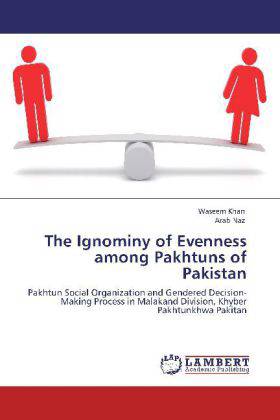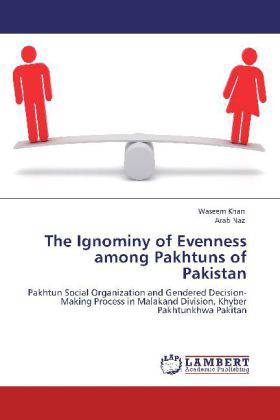
- Afhalen na 1 uur in een winkel met voorraad
- Gratis thuislevering in België vanaf € 30
- Ruim aanbod met 7 miljoen producten
- Afhalen na 1 uur in een winkel met voorraad
- Gratis thuislevering in België vanaf € 30
- Ruim aanbod met 7 miljoen producten
Zoeken
The Ignominy of Evenness among Pakhtuns of Pakistan
Pakhtun Social Organization and Gendered Decision-Making Process in Malakand Division, Khyber Pakhtunkhwa Pakitan
Waseem Khan, Arab Naz
Paperback | Engels
€ 77,95
+ 155 punten
Omschrijving
Gender issues are among the most sizzling and debated concerns in the current scenario of modernity. The history is witness that women almost in all societies have never dominated men and have compulsorily lived the oppressed and deprived lives. Besides, the societies that are running under the centuries old customary law and traditionalism have very less space for women empowerment and emancipation. Equilibrium in gender roles and parity in men-women statuses has become a social monster and is a matter of concern. In this context, this study is an attempt to illuminate the gender issue emphasizing over the gendered decision-making process among one of the oldest civilization named as Pakhtun. The study was conducted in a typical and traditional Pakhtun society namely Batkhela where all the socio-economic and political activities are predominantly governed by the Pakhtun Code of life renowned as Pakhtunwali. This research study is optimistically an elegant addition to the field of knowledge and particularly it would be a source of inspiration for those who are interested in gender related issues.
Specificaties
Betrokkenen
- Auteur(s):
- Uitgeverij:
Inhoud
- Aantal bladzijden:
- 252
- Taal:
- Engels
Eigenschappen
- Productcode (EAN):
- 9783848402113
- Verschijningsdatum:
- 16/03/2012
- Uitvoering:
- Paperback
- Formaat:
- Trade paperback (VS)
- Afmetingen:
- 152 mm x 229 mm
- Gewicht:
- 371 g

Alleen bij Standaard Boekhandel
+ 155 punten op je klantenkaart van Standaard Boekhandel
Beoordelingen
We publiceren alleen reviews die voldoen aan de voorwaarden voor reviews. Bekijk onze voorwaarden voor reviews.











